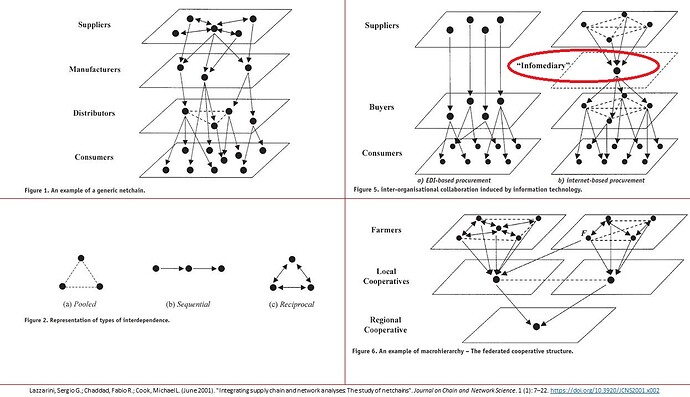A growing number of groups, communities, and regions are interested in cultivating local food systems which provide a variety of social, economic, environmental benefits. That includes self-determined and directed outcomes related to greater health, equity, resilience, and sustainability (HERS) across multiple levels, from farm plot to foodshed. Open technology solutions and ecosystems like those being developed by the GOAT community offer powerful tools for realizing such goals.
But there are many challenges to introducing and co-designing new technologies in a way which is truly equitable and inclusive. There is always the danger of further entrenching and widening existing divides between those already well-resourced to effectively leverage new technologies and those who lack the ability (or interest) to do so.
To fully realize the potential benefits open technologies can offer within such contexts, greater attention must be paid to how they are integrated within larger “socio-technical stacks”. Learning processes and spaces (virtual and physical) for developing shared understandings, goals, and trust between a diversity of food system stakeholders are required. They require acknowledging existing power dynamics and inequities, while illustrating how open technologies can help transform extractive food systems into continuously evolving, regenerative ones.
I invite those who share an interest in this topic to join me and others in discussing this at an unconference session at the upcoming GOAT 2022 gathering. What specific challenges and opportunities do you see? What examples of successes and failures can you share? What role can new ownership and governance structures play, including cooperatives and commons? What facilitative processes might help groups and groups of groups work together more effectively in support of shared goals and outcomes, and how?
2 Likes
YESS!!!
I think there are some tendencies within open source movements to develop the capacity for individual autonomy while neglecting tools for collective autonomy. On the one hand, there’s the image of the wizardly hacker who can pick up these powerful yet arcane tools and manifest their vision, all Matrix-style with streams of phosphor hexadecimal flying from their fingertips, lolz. At the same time, there are efforts to try to “design away” all the complexity inherent in socio-technical systems by making them easy enough for anyone—any one—to use, and while that certainly has its applications, I see that as coming up short of true collective empowerment as well.
I think in any community of practice that’s not specifically tech-focused, whether that’s agriculture or wood-working, there will be a certain number of people inclined to tinker with the tech. Admittedly, they will likely represent a tiny fraction of the group, while most others want technology that “just works” and then gets out of the way. But that said, there are ways that technology can be designed to leverage not only the technical skills and interests of those few nerds in the group, but also their broader social relations and role within the group as a whole. By situating those technical skills within their social context, we can leverage the full technical capacity of the community, not just one isolated individual, to get the best of both worlds—i.e., all-powerful hacker/magician as well as the ideal “invisible computing” environment.
Of course, that means looking at the entire “socio-technical stack” like you say. How can a community support the talents of a few individuals and raise their capacity so they in turn can raise the capacity of the group? In the past I’ve thought about this as promoting people into the role of paid technical service providers, who can hire out their expertise to build and maintain the technical infrastructure of those who are not as technically inclined. Increasingly, however, I’ve been thinking more about ways that such infrastructure itself can be collectively maintained, owned and controlled, which seems to me more resilient and sustainable long-term. It just requires even more attention to those “social stacks”, since it relies on the trust and commitment of everyone involved.
Thanks for adding your voice, insights, and encouragement to the conversation here Jamie!
The participatory research work you’re doing related to aggregation services and data exchange/interoperability can be a critical building block in realizing healthy, equitable, resilient, and sustainable food systems. And #PlatformCooperatives offer the opportunity for ensuring that infomediaries have the support they need to steward and leverage that data for the good of all “netchain” (networked value chain) stakeholders.
I look forward to learning more at GOAT 2022 about your and others work related to or informing foodshed and food sovereignty focused organizing efforts, whether it be through this or another session.
One thing I’m hoping to share and get feedback on is the idea of creating a template for “learning journeys” which can help groups and communities explore and learn about some key concepts, tools, and possibilities for developing their local and regional foodsheds, opening the door to more focused and coordinated future actions. That might include the formation of multi-stakeholder cooperatives and networks. All of which might be supported in part by collaborative platforms like hylo and the new tools they’ve been developing for farmers and food systems.
I’ve been “working out loud” a bit on this in various places, including the free and open source social bookmarking / citation management platform Zotero. I shared some thoughts there specifically related to “multi-stakeholder socio-technical enterprises” as part of a larger series of reflections for a group I created focused on socio-technical development approaches.
1 Like
